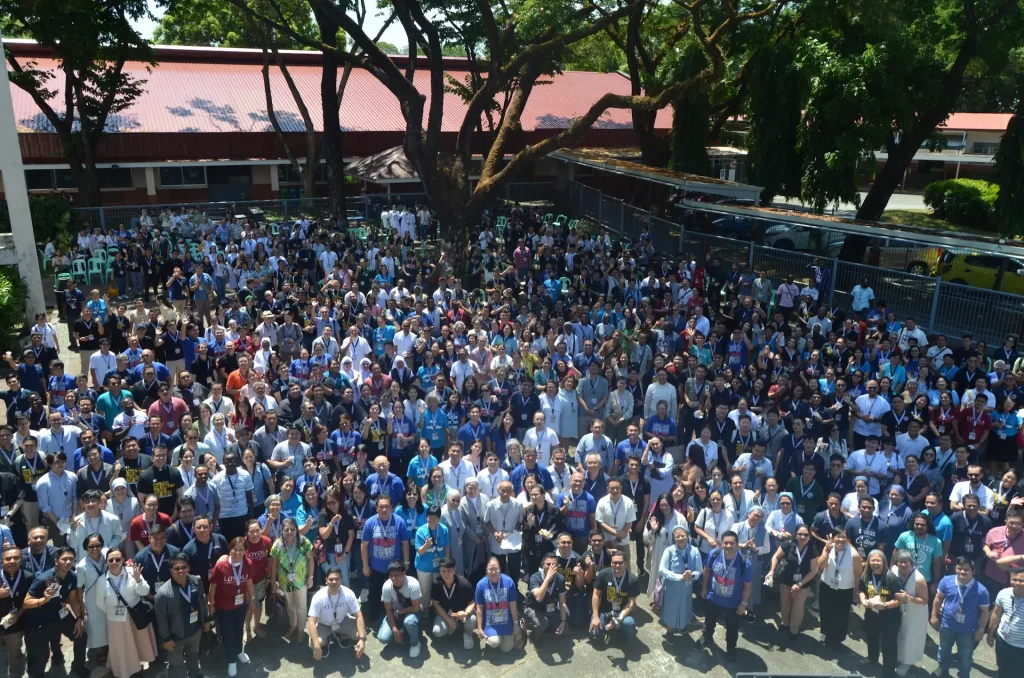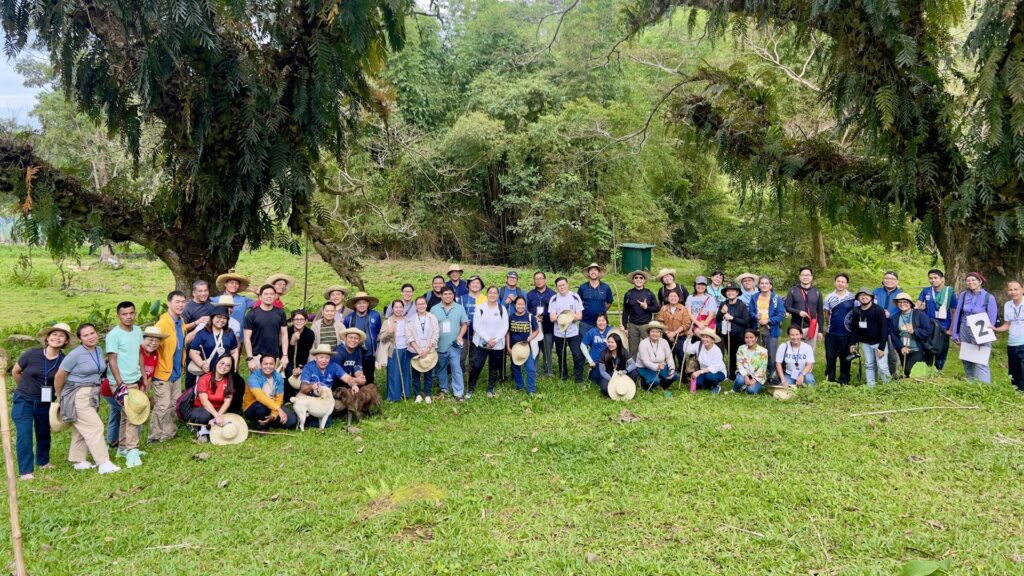Ignatius insisted that the identity of the Society should be intimately linked with the name and person of Jesus. As the first day of January celebrates the name given to Jesus, the beginning of each new calendar year has greater significance for Jesuits. It is a major Jesuit feast. “When eight days were completed … he was named Jesus, the name given him by the angel before he was conceived…” (Luke 2:21).
The only witnesses to this momentous event were some shepherds who happened to be close by. As we enter 2013, what can we learn from the shepherds? What does their experience have to say to those lay people, religious and Jesuits who share a common mission as companions of Jesus today?
I offer three features of this story for consideration. First we are invited to find God in the ordinary places where we are. Second, we are invited constantly to discern the events of our lives. Third, there is a reason why Luke’s story begins with the poverty in which Jesus was born, and echoes this theme right through the Gospel account by showing how Jesus lived among the poor and died possessing nothing.
First, God is present where we ordinarily are. Joan Chittister sums this up nicely:
“What surprised the shepherds was not that the Messiah would come or the angels had called them or the divine presence was a baby. What surprised them was that God had come to the very place where they have always been. The process is the same for us. Wherever we go to find Life, the fact is that Life is already within us if we will only attend to it.”
Second, Mary “kept all these things, reflecting on them in her heart”, and similarly, the “shepherds returned glorifying and praising God for all they had heard and seen”. Actually the shepherds, like Mary and Joseph, had nowhere to go but a field or a crude shelter, but the experience had profoundly marked their lives. In the Spiritual Exercises, the meditation on the birth of Jesus precedes the considerations of contrasting sets of values, and is another step in the preparation for making a good decision. The values reflected in the life of Christ from the very beginning are so different from those normally accepted by the world around us. Reflecting with a discerning heart on Christ’s birth and his naming prepares us for making choices about our present lives.
Third, Jesus needs us to join his work of bringing love and salvation to the world. Yet to join the mission of Jesus we have to rely not on ourselves, not on wealth, skills or influence, but on God working through us. This was the constant message of Jesus, beginning with the first mission given to the twelve: “Take nothing for the journey, neither staff, nor backpack, nor bread, nor money; and let none of you take a spare tunic.” If we rely on ourselves, we are limited to five loaves and two fish that don’t go very far.
In being born poor, Jesus does not glorify poverty, nor accept the conditions of so many poor of his day or of ours. Poverty is a scandal. The earth and all it contains is given by God for everyone. Freedom from poverty is a sign of the Kingdom in which the hungry are blessed and have their fill. Jesus chose to be born poor and to live and die in poverty because of a special love described as an ‘emptying’ of himself: “His state was divine yet he did not cling to his equality with God but emptied himself to assume the condition of a slave, and become as humanity is; and being as all humanity is, he was humbler yet, even to accepting death, death on a cross.” Because of this, “God raised him on high” (Philippians 2:6-9).
The poor shepherds are linked with the birth and naming of Jesus, and so linked with our story as Jesuits and companions in mission. Their discovery of Jesus in their ordinary lives, the discerning heart of Mary whom they visited, and their poverty all carry a deep message for us.
May this year now beginning be full of God’s blessings and joy.
Mark Raper SJ
January 1, 2013






